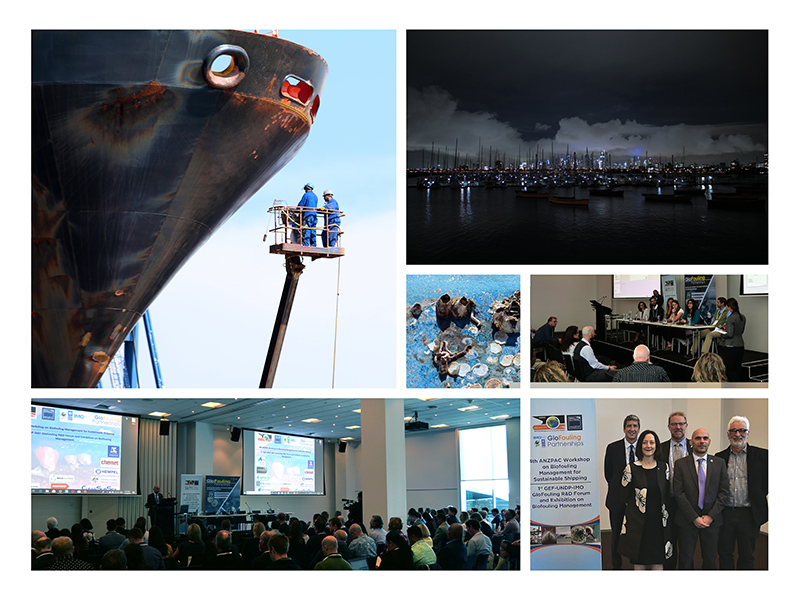The GEF-UNDP-IMO GloFouling Partnerships project has concluded its inaugural Research and Development Forum and Exhibition on Biofouling Management, in Melbourne, Australia (1 to 4 October).
Bringing together experts, regulators and industry representatives to discuss the latest advances in research, regulations and technologies related to marine biofouling across all maritime sectors, this is set to become the project’s biennial “signature event”.
Over 170 participants and 40 speakers took part in a programme (photos) that focused on how biofouling affects different maritime industries, including shipping, aquaculture and ocean renewable energies, and the role it plays in transferring non-indigenous species and pathogens.
A session on biofouling regulations and requirements saw discussion among representatives from Australia’s Department of Agriculture, New Zealand’s Ministry of Primary Industries, the US Environment Protection Agency, Transport Canada, the Maritime Authority of Chile and the California State Lands Commission. Other sessions included national perspectives from developing countries, discussions on how vessel biofouling can be a pathway for transmission of pathogens, biofouling risks in the offshore petroleum industry, and the latest research with regard to vessel efficiency and drag penalty due to hull roughness.
Participants in an Industry panel chaired by the World Ocean Council highlighted the role that private sector and industry associations should play in the development of regulations. Other key aspects were also considered, such as the barriers for implementing regulations and how the private sector shares the environmental concerns related to the transfer of invasive species.
More information on the event can be found on the GloFouling Project website and proceedings will be published in
November 2019 in the GloFouling Knowledge
hub.
